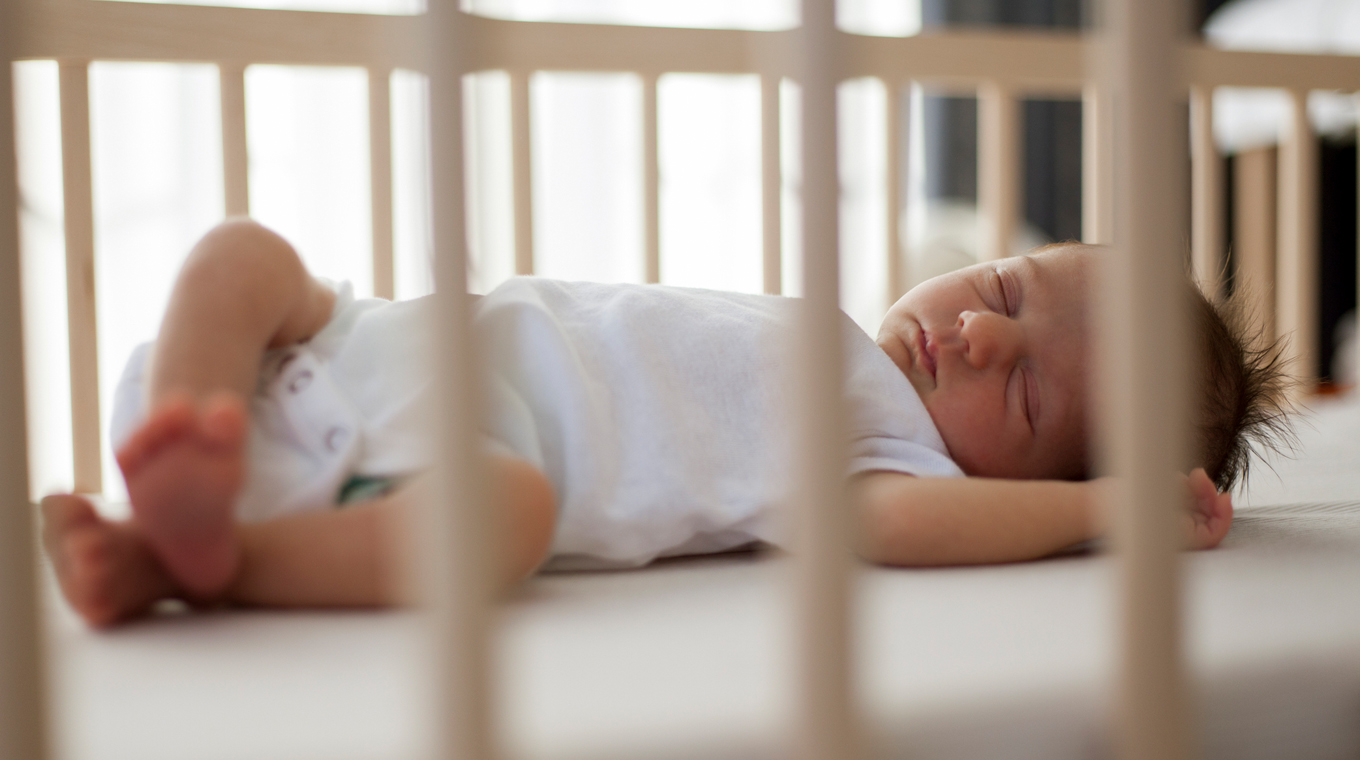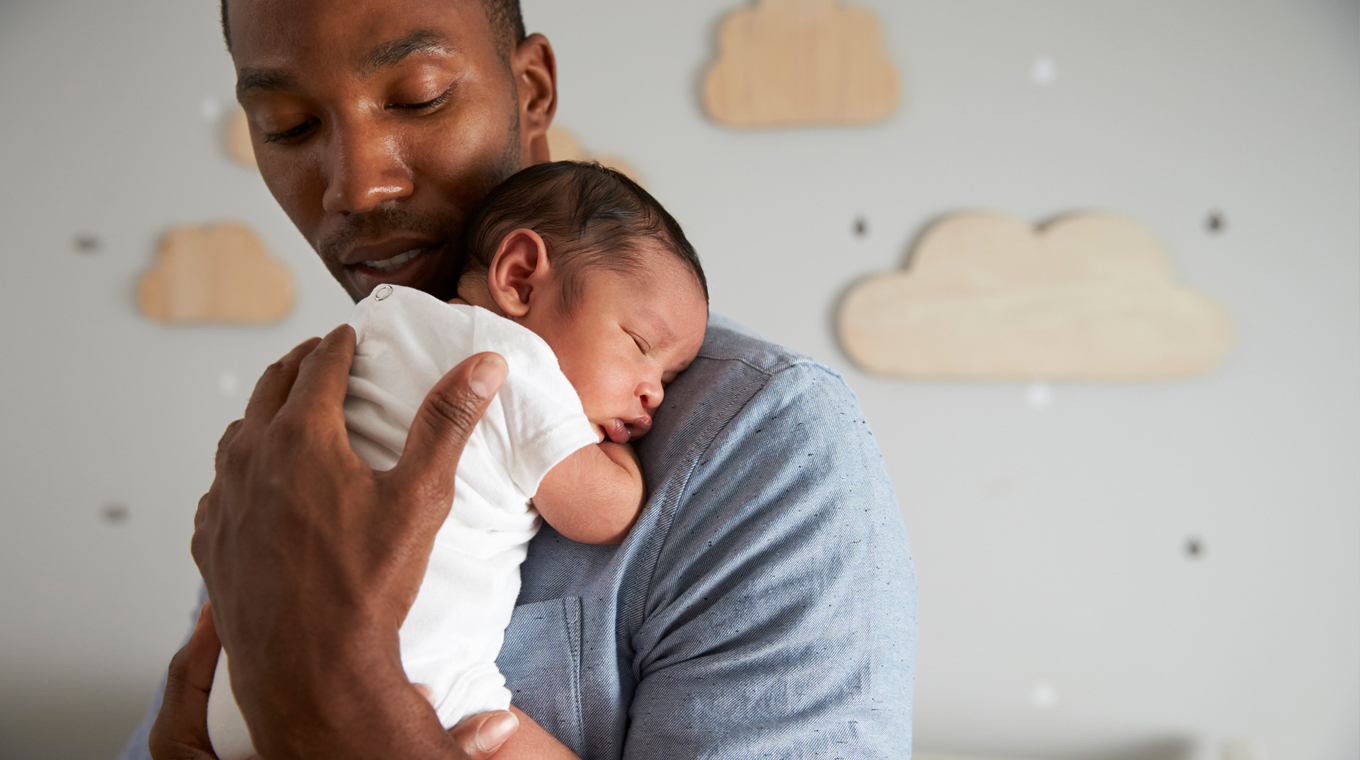
In this article
If you’ve ever had a baby, you know that they spend the majority of their first few years of life sleeping. In fact, newborns sleep about 14 to 17 hours a day! Given all that sleeping, you may occasionally wonder if infants can even dream — and if so, what do babies dream about and what do their dreams mean? Read on to learn what babies might experience in their REM sleep and if those qualify as dreams.
Do babies dream?

Honestly, we may never know.
While it may seem that babies are dreaming from their placid little faces and toothless grins, we’re not really sure. It is fun to picture, though.
“There is nothing better than a baby who smiles in their sleep,” mom Amy NK told Mom.com. “Another favorite was when my babies would make little sucking motions with their lips while they slept. I have no idea if they were dreaming, but something was making them happy and content in those moments, and that was enough!”
Also, don’t worry if you see your baby twitching, flailing about, or making noises when they’re sleeping. Experts call this the Moro reflex or startle reflex, which naturally occurs as babies develop their motor skills and usually disappears by 3 to 6 months of age.
A lot of what we know about dreams comes from sleep studies — some of which involve self-reporting, journals, or using scanners like MRI or EEG machines that capture images of the brain or record brain waves. As you can imagine, self-reporting or journaling from newborns is most likely not happening — and putting a baby into a scanner is not a common situation unless it is for something more pressing than determining whether babies do, in fact, dream.
What do leading researchers say about babies and dreams?

REM (rapid eye movement) sleep, which is about 20% to 25% of adult sleep, is when most dreaming occurs for adults. According to the American Academy of Pediatrics (AAP), infants spend about 50% of their sleep in REM sleep — practically double the time in that of adults.
So if babies do in fact dream, then they spend a lot of their time doing so!
(Additional fun fact: brain waves similar to REM sleep have been observed in fetuses between 25 to 28 weeks. Though it’s inconclusive, experts conjecture REM sleep starts even in utero.)
However, the jury’s out on whether babies actually dream.
Some neuroscientists believe that babies require the ability to imagine a situation visually and spatially in order to dream. Because babies lack self-awareness and object permanence, they therefore cannot dream.
Pediatric dreaming expert and psychologist David Foulkes wrote in his book, “Children’s Dreaming and the Development of Consciousness,” that “there is a big difference between seeing the real world and seeing a dream world” because “dreaming creates patterns that have never been experienced before, and it does so in the absence of environmental stimulation.”
In other words, just because an infant can experience their surroundings doesn’t mean they have the capacity to dream up entirely new surroundings.
In 2002, Foulkes posited that young children don’t start dreaming until they can visually and spatially imagine their environment — and even then, their dreams are static and one-dimensional. He claimed children don’t start dreaming graphic narratives until they’re at least 7 years old — that they required a clear sense of identity and how they fit in the world at large before they can dream true dreams.
Recently however, there has been increased scientific awareness of the cognitive capacities of babies. “In the past three decades scientists have discovered that even the youngest children know more than we would ever have thought possible,” UC Berkeley child psychologist Alison Gopnik wrote in Scientific American.
In addition, the current body of dream science research challenges some of Foulkes’s conclusions. In a 2005 New York Times Q&A, Charles P. Pollak, director of the Center for Sleep Medicine at NewYork-Presbyterian/Weill Cornell hospital, gave a definitive answer. When asked if babies dream, he replied, “Yes, as far as we can tell,” and went on to say that there is evidence to conclude that babies do so during REM sleep.
What’s happening during REM sleep for babies?

What exactly are babies doing during REM sleep?
Well, sleep at any age aids in memory consolidation, incorporating our experiences as well as expanding our knowledge base. Plus, during the first few weeks and months of a baby’s life, sleep helps their brain grow and process information — and babies have to process a lot of information. There’s a reason why the first three months are considered the fourth trimester!
Regardless of whether babies dream, sleep is super important to their healthy development, and until science tells us more, we can content ourselves with the knowledge that their nascent brains are busy at work.




